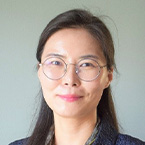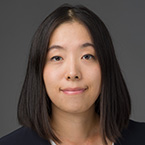AACR-Bayer Stimulating Therapeutic Advances through Research Training (START) Grants
The AACR-Bayer Stimulating Therapeutic Advances through Research Training (START) Grants represent an exciting initiative to encourage and support collaboration between academia and industry. The combined academic and industry training provided through this program will be invaluable to young investigators, allowing them to attain a comprehensive research experience. Projects have direct applicability and relevance to clinical translation and development in solid tumors and hematologic malignancies.
2020 Grantees

Research
ATP-binding cassette (ABC) transporters contribute to multidrug resistance (MDR) by pumping cytotoxic drugs out of cancer cells. Among ABC transporters, multidrug resistance protein 1 and multidrug resistance-associated protein 1 have been extensively investigated and are implicated in refractory and resistant (R/R) cancer in response to chemotherapy and antibody-drug conjugates (ADCs). As these transporters are potential targets for developing more efficacious cancer treatments, Dr. Hwang proposes dual-payload ADCs that are designed to mitigate MDR in cancer cells. These dual-payload ADCs can selectively co-deliver anti-cancer drugs and MDR inhibitors to cancer cells without harming healthy tissues that endogenously express ADC transporters. Blocking MDR activity through an inhibitor can prompt the accumulation of the co-delivered anti-cancer drug and kill tumor cells at lower ADC dosing.
Biography
Dr. Hwang received her doctoral degree at Seoul National University. Her research focused on discovering and engineering antibodies through phage display technology for use as cancer therapeutics and medical imaging tools. Since joining The Scripps Research Institute in 2017, she has continued to work in the field of antibody therapy, specifically on the development of next-generation antibody-drug conjugates (ADCs) for cancer therapy. She is developing new conjugation technologies for the generation of site-specific ADCs and new antibody carriers to improve their tumor tissue penetration.
Acknowledgement of Support
I am very honored to have been selected for the AACR-Bayer START Grant and appreciate the support of my mentors for this proposal. This award will allow me to acquire insight into industrial drug discovery and development, continue my research on antibody-based cancer therapeutics, and greatly facilitate my career development.

Research
Pancreatic cancer is one of the deadliest types of cancer with a five-year survival rate in the single digits. There are multiple subtypes of this malignancy, which includes adenosquamous carcinoma of the pancreas (ASCP), a highly aggressive tumor with the poorest clinical outcome out of all pancreatic cancers. Given recent studies showing that a considerable proportion of pancreatic cancers exhibit adenosquamous features, the need to better characterize ASCP and to explore its molecular dependencies is of great importance. Using a new mouse model that develops ASCP as well as patient-derived samples, Dr. Nakamura plans to uncover the key molecular drivers that govern the formation and progression of ASCP tumors.
Biography
Dr. Nakamura obtained her BSc, MSc, and PhD from the University of Tokyo in Japan. She is currently a postdoctoral fellow at the University of California San Diego. Her research focuses on understanding the molecular mechanisms regulating pancreatic cancer progression and aims to identify novel therapeutic targets for the disease.
Acknowledgement of Support
The AACR-Bayer START Grant provides me with an important opportunity to explore the therapeutic vulnerabilities of ASCP, an aggressive subtype of pancreatic cancer that has thus far not been investigated thoroughly. I am honored to receive this support and hope to use this opportunity to gain exciting insights for the field.